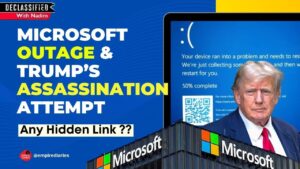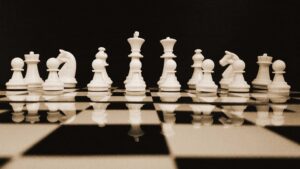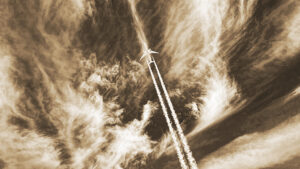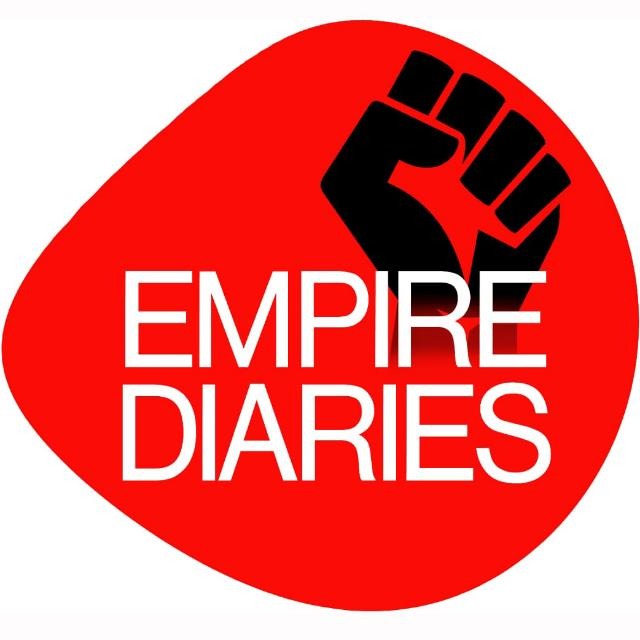
Terrorism, Hiroshima and Nagasaki
August 5, 2023: Let’s do a quick psychological test. If I ask you right now to think about the deadliest terror attacks of all time, which ones come to mind instantly? The September 11, 2001 attacks in the US, right? What else comes to mind? The Pulwama attack in 2019? Ajmal Kasab’s Mumbai attacks in 2008? What else can you quickly recall? The 2015 Paris attacks? The 2006 Mumbai local train bombings? The massacre at the Munich Olympics in 1972? The Air India Kanishka plane bombing in 1985? There are some more attacks that are coming to mind, isn’t it?
Why did you think of these particular terror attacks when I asked you the question? Because we know them as the most well-known and most barbaric acts of terrorism. They left a deep cultural and emotional impact on society that will remain for ages.
Now, let’s think about drawing up a list of the 50 deadliest terror attacks of all time, and it should be done on the basis of number of civilians killed. If that’s the criteria, which terror attack should come at the top of the list? The correct but surprising answer is – the nuclear attacks carried out by the US military in Japan in 1945. Yes, we’re talking about Hiroshima and Nagasaki.
On August 6 and August 9 that year, the Pentagon – which is the taxpayer-funded American war office – dropped atom bombs on these two Japanese cities. Hiroshima’s unsuspecting civilian population took the first blow, from a uranium bomb, followed by Nagasaki, which was hit by a plutonium bomb. The US military’s terrorist attacks wiped out at least 2,30,000 people over the next three to four months. The actual figure could be much higher than official estimates. Add to that the thousands and thousands of deaths that took place in the long run due to radioactivity from the atomic blasts.
The death toll from the two attacks are far, far higher than the combined casualties from all the other 49 terror attacks that would feature on that list of the biggest terrorist strikes. In about 12,000 years of human civilisation, it’s the only episode of atom bombs being unleashed on civilian populations.
Hiroshima and Nagasaki: Bombings vs. Terrorism
Despite the casualty numbers clearly proving that the attacks on Hiroshima and Nagasaki were the biggest terrorist attacks or terrorist strikes of all time, the global narrative remembers the Pentagon’s inexcusable acts only as bombings. As Japan now marks 78 years since the atom bomb was dropped on Hiroshima, on this dark occasion, we ask a simple question – why don’t the attacks on Hiroshima and Nagasaki qualify as acts of terrorism despite being so?
A lot of critics you know slam the United States for being the only country to drop nukes on civilians, and without any warning. Yet, nobody puts the North American perpetrators in the same bracket as that of other terrorist entities, such as Al-Qaeda, Tamil Tigers, Islamic State, Khalistanis, Lashkar-e-Taiba, Boko Haram, Maoist guerilla, Taliban, Muslim Brotherhood, Hamas, Hezbollah, Khmer Rouge, Jaish-e-Mohammad, and so on.
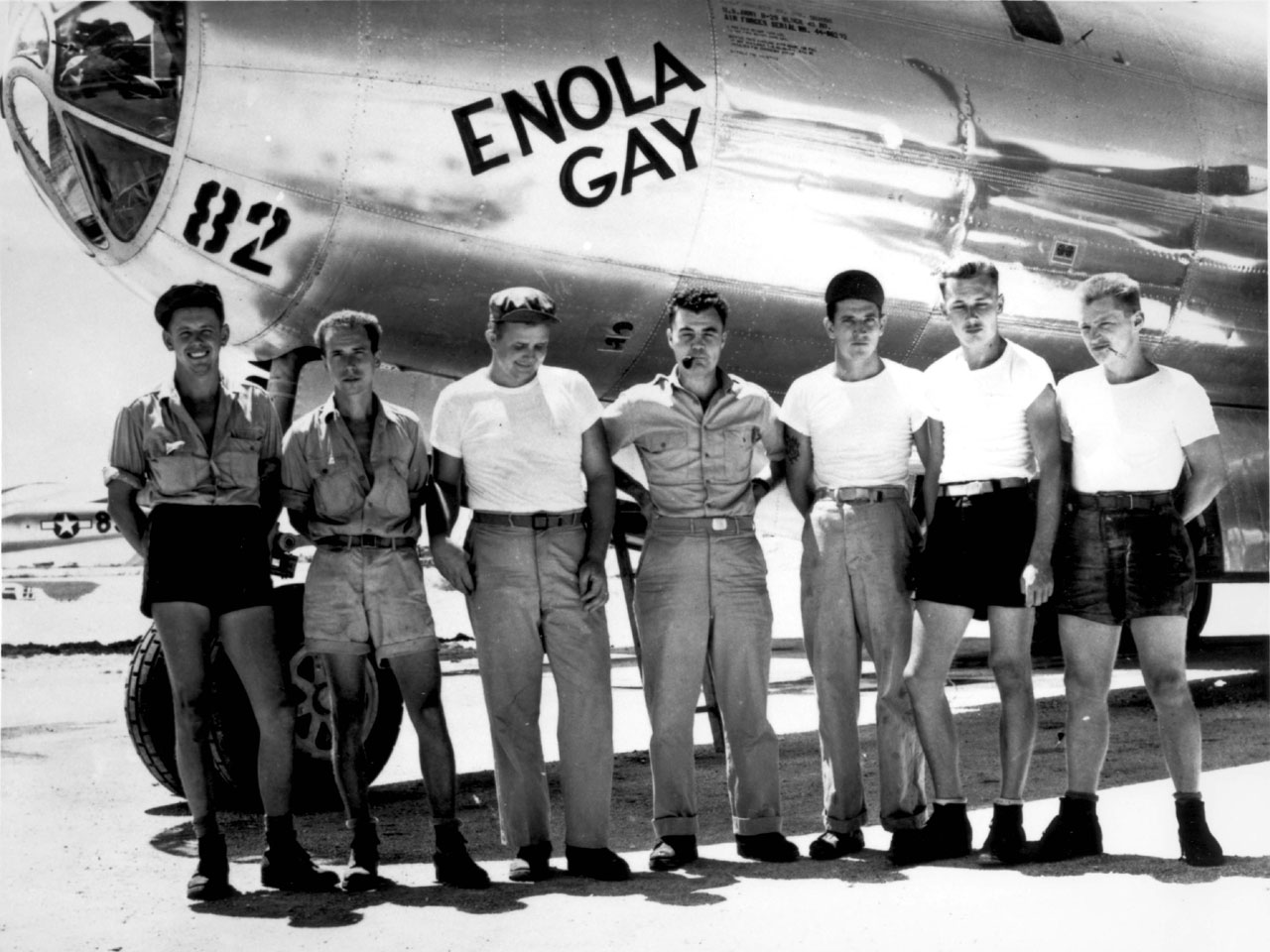
Why do the criminal acts on Hiroshima and Nagasaki get that special privilege of not being clubbed with other terror attacks? Why this special honour? Is it because the terrorists in this case were American nationals? Is it because the terrorist commander who ordered the attacks was an American president? It was Harry Truman who ordered the two nuclear attacks. In the following video, have a look at Truman laughing shamelessly midway into his announcement of the Hiroshima attack, effectively trivialising the human tragedy:
The two nuclear strikes on Hiroshima and Nagasaki were carried out by the US military with the scientific and research support from the governments of Britain and Canada. Remember the infamous Manhattan Project, recently glorified by the US PR machinery using the much-hyped Hollywood flick, Oppenheimer?
Well, the Manhattan Project was a stylised name assigned to what was actually the foundation of a blatant terrorism project. An Anglo-American project in which the US, Britain and Canada worked together, eventually to build a devastating weapon that would go on to terrorise and wipe out the innocent populations of Hiroshima and Nagasaki.
Hiroshima-Nagasaki narrative war
Let’s try to understand why we don’t see the 1945 Japan episode as terrorism. It is said that whatever we think and understand is always a result of what our environment wants us to think. If you properly study the freely available sources of information on the Japan attacks, you will get the answer.
What are the popular information sources we rely on? Television, social media, newspapers, magazines, schools, universities, research bodies, bookshops, libraries, government spokespersons, movies, online series, clubhouses, and next-door neighbours. All of them, all the time, use the term ‘Hiroshima and Nagasaki bombings’. They never use the term ‘Hiroshima and Nagasaki terrorism’.
We ran a Google search of the term ‘Hiroshima and Nagasaki’ to see what shows up. We also visited a number of popular information domains online and checked out the exact words they use to describe the 1945 attacks on Japan. The results showed a consistent pattern. Be it legacy news media outlets or well-known search engines and websites, the attacks on Hiroshima and Nagasaki are conveniently described as ‘bombings’ and are never compared or bracketed with terrorism.
Here are are few case studies in the form of screenshots:





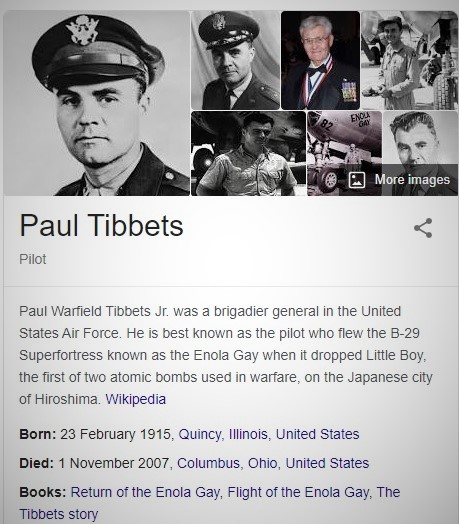

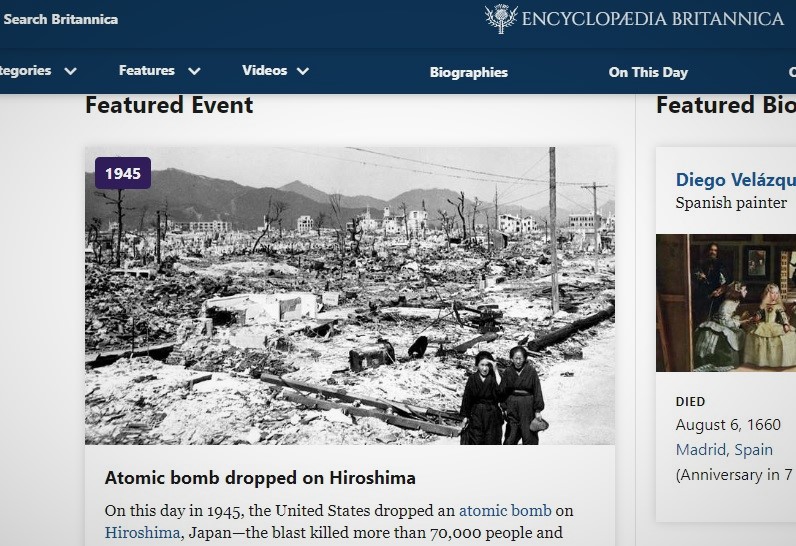

Flimsy counter arguments
Some people will argue that the attacks on Hiroshima and Nagasaki don’t qualify as terror attacks because they happened towards the closing stages of the Second World War. Therefore, it was a battle within the war, it is argued. Some people will also argue that it was America’s rightful revenge on Japan for carrying out the Pearl Harbor attack much earlier in 1941. Therefore, it’s not terrorism.
But these arguments frankly don’t hold water. World War II was on the verge of ending when the plot to bomb Japan with nuclear weapons was hatched by the Anglo-American West. And killing innocent civilians in Hiroshima and Nagasaki can’t qualify as rightful revenge for Japan’s attack on Pearl Harbor.
So, here’s the root of the whole problem. The Americans carried out the greatest terrorist attacks of all time. But they cannot be called terrorists – why? – because they are the ones who decide who should be called a terrorist.
US empire’s PR skills
The United States of America is the most powerful empire of our times. Therefore, it is the most influential one. It knows how to weaponise information that the public is spoonfed. The worldview that you have today is the worldview that the US empire wants you to have. Similarly, the US and its gigantic PR machinery decides which attack is terrorism and which attack is a bombing.
Georgy Zhukov, who used to be a marshal with the Soviet Union and was also the Soviet defence minister, hit the nail on the head when he slammed the US decision to bomb Hiroshima and Nagasaki by calling the actions “totally unjustified” and “militarily unnecessary”.
It’s not that the American PR machinery is not critical of the US empire’s deeds and misdeeds. But it does that in a very subtle way. Take some prominent examples. According to the Western media, the terror attacks on Hiroshima and Nagasaki are bombings. The US-led terror campaign in Iraq is called an invasion. The US military’s terrorism in Afghanistan is called occupation. US-led terrorist acts against socialist governments in South America are called covert operations. And US-led financial terrorism against Iran, Russia, and North Korea are called economic sanctions.
The word terrorism is not used whenever the White House, the Pentagon, the US State Department (the foreign ministry), and the CIA are the culprits of a crime. That honour is reserved for countries and organisations that don’t like to take orders from the American empire.
It’s all about the jugglery of words. That’s the power of empire: shaping the narrative through the art and craft of wordplay to redefine criminal acts as per convenience. An interesting story is worth a mention. There was a time when a section of the American press used to project Osama bin Laden as a courageous “warrior” because he was working on behalf of US intelligence at that time, trying to drive the invading Soviets out of Afghanistan. Yet, many years later, the same US media labelled Laden as a “most wanted terrorist” following his leadership role in the unfortunate 9-11 terror attacks in America.
Chomsky on what is legal, what is not
In this context of whether state-backed crimes against humanity should be labelled as terrorism, it is relevant to revisit a 1971 televised discussion between Noam Chomsky and Michel Foucault – two of the most influential anti-imperialist thinkers from the West.
The discussion, held under the topic ‘Human Nature: Justice vs. Power’, was a controversial and philosophical debate that was hosted in the Netherlands in November 1971. During that debate, Chomsky – a lifelong critic of America’s interventionist foreign policy – raked up the sensitive subject of criticising the state over acts that should be deemed illegal by the public.
Chomsky argued that if the state commits an action that it itself considers legal but that the public consider illegal, then it becomes “obligatory behaviour” for the public to stop that state’s illegal actions. The argument presented by Chomsky can be heard here:
What happened in Hiroshima that day
The US military’s attacks on Hiroshima and Nagasaki are really unpardonable. America’s own National Park Service gives a detailed account of the Hiroshima blast on its website. It says:
“The temperature near the blast site reached 2,980 degrees Celsius. The sky seemed to explode. Birds ignited in midair. People over two miles away burst into crumbling cinders. Others with raw skin hanging around their hips leaped shrieking into waterways to escape the heat. Men without feet stumbled about on the charred stumps of their ankles. Women without jaws screamed incoherently for help. Bodies described as boiled octopuses littered the destroyed streets. Children, tongues swollen with thirst, pushed floating corpses aside to soothe their scalded throats with bloody river water.”
This unreadable, raw, and truthful description of Hiroshima shortly after the nuclear blast on August 6, 1945 sums up the intensity and audacity of American terrorism on foreign soil. The question is – how long will the US empire get away with this jugglery of words? Will they continue to fool all of us, all the time?
REPUBLISHING TERMS:
All rights to this content are reserved. If you want to republish this content in any form, in part or in full, please contact us at writetoempirediaries@gmail.com.
WATCH THIS SPECIAL REPORT:

